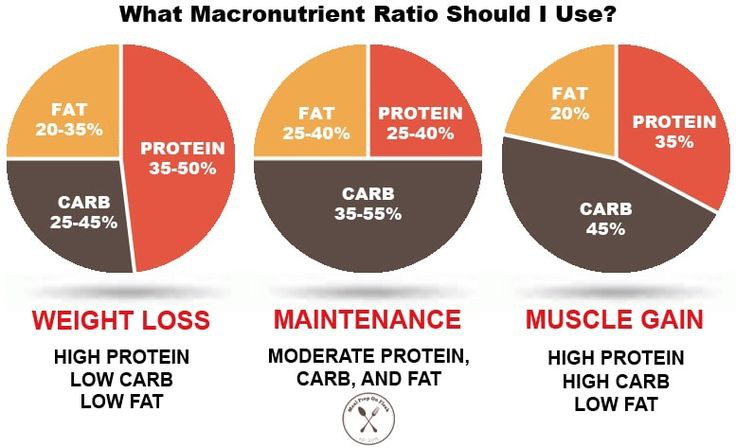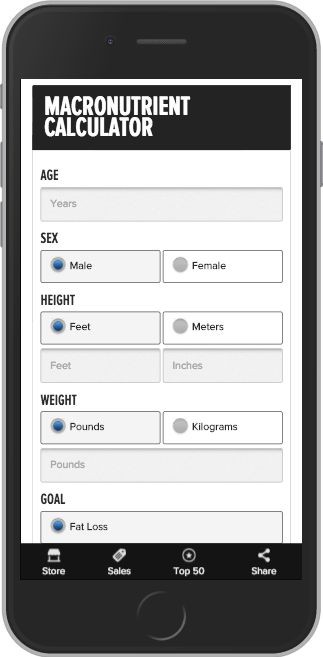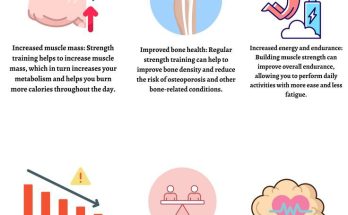Macronutrient calculator is a tool that estimates your calorie intake and helps you determine the amount of macronutrients your body needs.
Macronutrients are the type of food or nutrients a person requires in larger quantities to provide energy. Carbohydrates, fats, and proteins are macronutrients. These are considered essential nutrients because your body can either not make them or can’t make enough of them.
Each macronutrient has specific functions in the body. Carbohydrates convert glucose to energy, maintaining proper functioning of the CNS (Central Nervous System), kidneys, brain, and muscles, keeping the intestine healthy, and eliminating body waste.
Proteins, on the other hand, form necessary hormones and enzymes, enhance body growth and tissue repair, preserve lean muscle mass, and produce energy the carbohydrate is absent.
Fats enhance normal growth and development in the body, cushion essential organs, maintain cell membranes, also provide energy, and absorb Vitamin A, D, E, K, and carotenoids.
The United States Department of Agriculture (USDA) Dietary Guidelines recommend these Acceptable Macronutrient Distribution Ranges (AMDR) for adults.
- Protein: 10-35% of your total calories.
- Carbohydrates: 45-65% of your total calories.
- Fat: 20-35% of your total calories.
The guidelines also recommend that adults get at least 130 grams of carbs per day.
However, it is also important to note that the exact amount of each macronutrient that you need may vary depending on your age, gender, and activity level.

How Does the Macronutrients Calculator Work
The Macronutrient calculator works by taking the information you provide about your gender, age, height, weight, and activity level by using it to calculate how many grams of calories you need to consume daily. It calculates the recommended amount of macronutrients you should be taking in. The calculator uses these factors to determine your BMR (Basal metabolic rate). BMR is the number of calories your body burns at rest. The Macronutrients calculator can also calculate your body’s ratio of muscle to fat in your body. Based on your body ratio, the Macronutrients calculator can give you a more accurate estimate of your calorie needs.

How to Calculate Using the Macronutrients Calculator
There are a few online Macronutrient calculators one can use to calculate their calorie and macronutrient needs. Some of these online Macronutrient calculators include Calculator.net, Forbes Health macro calculator, and Macronutrients percentage calculator by Bill Sukala. A wide range of values are provided on each calculator and you are required to fill it in.
For instance, Calculator.net provides different units ranging from US units and metric units to other units accepted by the calculator. After choosing which unit works better for you, You will then have to input the other factors which include age, gender, height, weight, activity level, and goal, then calculate.
While the Forbes Health macro Calculator provides the imperial and metric units, you will also input your gender, age, weight, height, and level of activity, then calculate.

Types of Macronutrient Calculator
There are two (2) major types of Macronutrient calculators. They are.
- General calculators: A general calculator is a calculator that uses general information, like your age, height, and weight, to give you a rough estimate of your calorie and macronutrient needs. Examples could be Calculator.net as mentioned earlier. For a person just looking for a general idea of how many calories and macronutrients they need, a general calculator is a good option.
- Personalized calculators: Personalized calculators are calculators that uses more specific information, like your activity level and body composition, to give you a more accurate estimate. An example could be the macronutrient calculator mentioned above. For a person looking for a more detailed and specific breakdown, a personalized calculator is a better choice.
Benefits of Macronutrient Calculator
There are a few benefits of using a Macronutrient calculator. They include.
- Helps you keep track of your progress more easily: With a Macronutrient calculator, you can track your calorie and macronutrient intake over time to see how your body is responding to your diet.
- Helps you avoid common mistakes when dieting: For example, it’s easy to under or overestimate your calorie and macronutrient needs, which can lead to problems like not losing weight or gaining too much weight. A Macronutrient calculator can help you avoid these hitches by giving you accurate, personalized recommendations.
- Helps you save money: When you know exactly how many calories and macronutrients you need, you can shop and cook more accordingly. This can help you avoid wasting food and money on unnecessary items.
- Helps you identify any deficiencies in your diet: For example, if you’re not getting enough protein, the calculator can help you make adjustments to your diet to ensure you’re getting enough.
- Helps you identify any imbalances in your diet: For example, if you’re eating too much fat and not enough carbs, the calculator can help you find the right balance for your needs.
- A Macronutrient calculator can be a good way to learn about nutrition: By using the calculator, you can gain a better understanding of how different foods affect your body and which foods are best for your health.
- Helps you save time and effort: When trying to figure out your macronutrient needs, You won’t have to spend time doing calculations or trying to remember complicated formulas.
- The Macronutrient calculator helps you make healthier choices when cooking and eating out.
Conclusion
Just as seen above, the Macronutrient calculator is important and needed to keep track of your calories and macronutrient needs.
The Macronutrient calculator is useful for people who are trying to lose weight, people with medical conditions like heart conditions, and diabetes, and even for people who just want to eat healthier.



